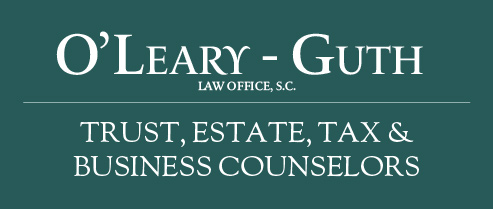introduction to ESTATE PLANNING
Careful estate planning can protect your assets during your lifetime and preserve your estate for your heirs and other beneficiaries after your death. A well thought out and personally tailored estate plan can insure your assets are distributed as you intended after your death while minimizing administrative costs, transfer costs, and taxes. An estate plan can also protect wealth from the claims of creditors and predators in the event of a divorce, lawsuit or bankruptcy.
Your estate plan may very well be the most important set of legal documents you will ever sign. With a well drafted estate plan you can:
- Control how your property will be distributed at the time of death
- Nominate a guardian for children
- Reduce the costs of probate (and, perhaps even eliminate the need for probate altogether)
- Reduce wealth transfer taxes at death
- Provide for the preservation of wealth and the conservation of assets both during life and after death
- Protect your estate and your heirs’ inheritance from creditor claims, divorce, and unnecessary taxation
Each estate plan begins with a complimentary introductory meeting at which time we can discuss your financial affairs, family dynamics, and goals. With that information in hand, we will be able to develop a personalized estate plan that is tailored to your unique situation. The estate plans we prepare often include a revocable living trust as their cornerstone. Revocable living trusts can eliminate the need for probate and insure your wealth is transferred to future generations after your death in a systematic manner. It may also help reduce the risk that someone will challenge your wishes after your death.
When necessary, we can also assist our clients with the implementation of sophisticated estate tax reduction strategies such as the establishment of family partnerships and limited liability companies, grantor trusts, irrevocable life insurance trusts, qualified personal residence trusts and charitable trusts to name just a few examples. Furthermore, current estate tax laws may make it beneficial to file an estate tax return even if the person who passed away does not owe estate taxes.
Gifts to charity, both during life and upon death, are oftentimes an important part of a person’s estate plan. However, careful planning is needed to insure charitable gifts and bequests produce the greatest possible impact and maximum tax benefits. For example, while charitable bequests at death are deductible when determining federal estate taxes, charitable gifts made during life avoid gift taxes and typically result in a federal income tax deduction. As a result, from a tax perspective, charitable gifts during lifetime are often more advantageous than gifts made at death.
We have the experience and knowledge needed to make sure your charitable gifts and bequests are structured in a way that best suits your intentions. For example, we can help you evaluate a variety of charitable giving strategies including:
- Gifts and bequests
- Donor advised funds
- Charitable Trusts
- Private Foundations
To learn more, Contact Us to schedule an appointment with a knowledgeable attorney who practices in this area of law.
Schedule an appointment with us today.
Meet with a knowledgeable attorney who specializes in your area of law.
1251 W. Glen Oaks Lane, Mequon, WI 53092
F: (262) 238-6999
